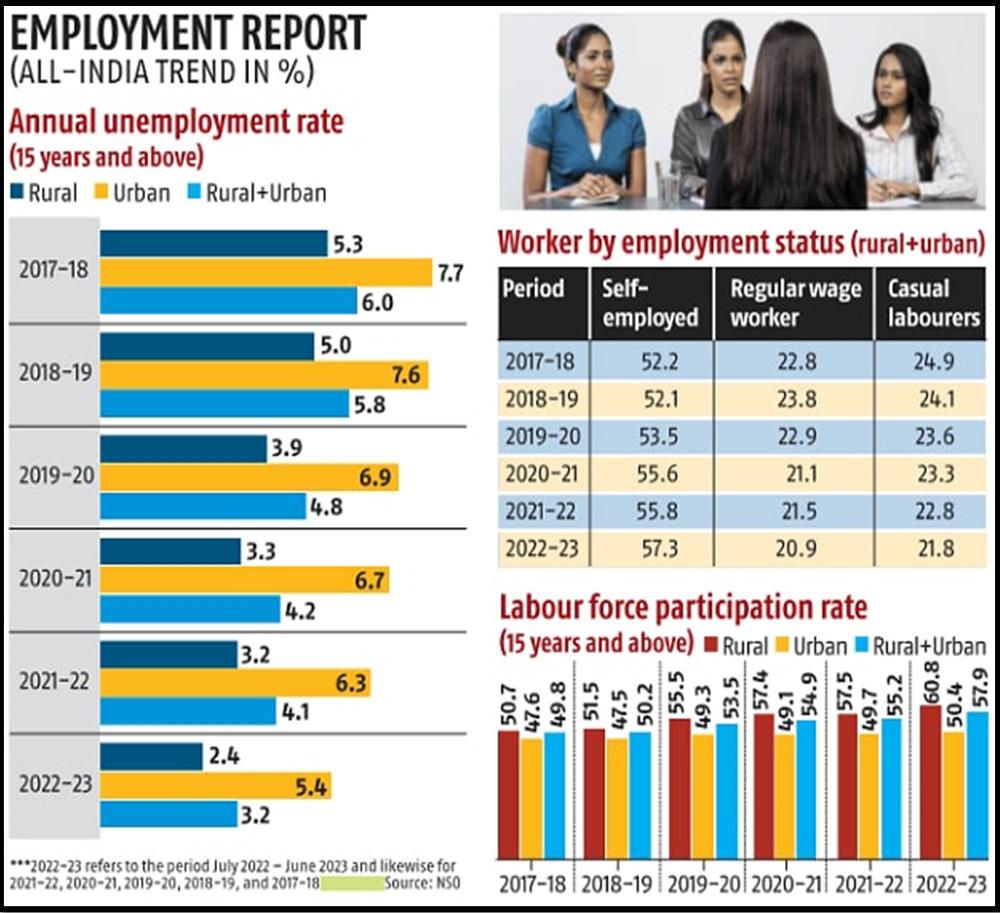“REVITALIZING LABOUR STATISTICS FOR INFORMED POLICY REFORM”
Syllabus:
- GS-3-Inequality in India and its impact ,Labour issues and Data reforms
Focus :
- Top of Form
- The article emphasizes the urgent need for trade unions to play a proactive role in generating robust labour statistics to inform evidence-based policy reforms in India.
- It highlights the deficiencies in current labour statistics, discusses key reform arguments, and proposes concrete steps for trade unions to collaborate with academics and policymakers in revitalizing the labour statistics landscape.
Introduction:
- The dynamics of labour institutions and market necessitate reforms.It talks about lack of evidence-based arguments in labour reform debates.
Importance of Labour Statistics:
- Labour statistics crucial for informed policy-making.
- Current labour statistics lack rigour and comprehensive coverage.
INDIAN LABOUR CONFERENCE :
|
Source - BS
Reform Arguments:
- Criticisms by employers and neoliberal academics and Employers’ critique of the inspection system
- Need for evidence-based counterarguments by trade unions.
Labour Inspection System:
- Lack of comprehensive data on inspections undermines arguments.
INTERNATIONAL LABOUR ORGANISATION:
|
Firing/Closure Reform:
- Insufficient data on retrenchment/closure applications and permissions.
- Need for empirical evidence to challenge reform narratives.
Strikes and Lockouts:
- Analysis of strikes and lockouts data-It tells Importance of using data to challenge restrictive labour laws.
Role of Trade Unions:
- Potential role of trade unions in producing labour statistics.
- Importance of active engagement with academics and policy-makers.
International Commitments:
- India’s ratification of Labour Statistics and Labour Inspection Conventions.
- Need for valid, comprehensive, and reliable labour statistics.
Proposal for Action:
- Trade unions to produce labour statistics and conduct research.
- Collaboration with academics for evidence-based arguments.
- Imagining a scenario of mass strike for labour statistics reform.
Conclusion:
- Urgent need for trade unions to take proactive steps in producing labour statistics.
- Reforms in statistical agencies like the Labour Bureau imperative for informed policy-making.
Source:The Hindu
Mains Practice Question :
GS-3
” Discuss the critical role of evidence-based arguments in labour reform debates, and evaluate the potential of trade unions in revitalizing labour statistics to inform policy reforms in India, considering the challenges and opportunities in the current scenario.” (250 words)




